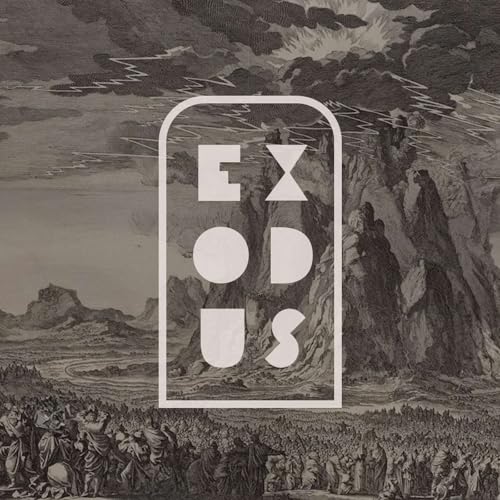
Exodus: Chapter One
Échec de l'ajout au panier.
Échec de l'ajout à la liste d'envies.
Échec de la suppression de la liste d’envies.
Échec du suivi du balado
Ne plus suivre le balado a échoué
-
Narrateur(s):
-
Auteur(s):
À propos de cet audio
Welcome to our first sermon diving deep into the text of Exodus! Today, we're in chapter one, asking the right questions to unlock its meaning. We'll explore why Israel is in Egypt, why the mighty Pharaoh is unnamed, and how two overlooked midwives, Shiphrah and Puah, become the unlikely heroes of the story.
Scripture References
- Exodus 1: The enslavement of Israel in Egypt.
- Genesis 12:1-3: God’s promise to make a great nation from Abraham.
- Genesis 46:3-4: God’s command for Jacob (Israel) to go to Egypt, promising to be with him.
- Genesis 1:28: The creation mandate to "be fruitful and multiply."
- Genesis 3:1, 15: The "shrewd" serpent and the promise that the woman's offspring would crush its head.
Key Points
1. Israel in Egypt: An Act of Obedience
The book of Exodus starts like a sequel, connecting directly to Genesis. The Israelites are in Egypt not by mistake, but because God led them there during a famine, promising to be with them. This is a crucial reminder: following God often leads us into hard places, not just easy ones.
2. The Unnamed Pharaoh: A Symbol of Evil
Pharaoh is left unnamed for three reasons:
- It’s an insult: "May his name be forgotten," while the Hebrew midwives are named forever.
- He’s a symbol: He represents the oppressive evil of every empire built on exploitation.
- He's the serpent: He acts "shrewdly" (the same word used for the serpent in Genesis 3) against God's people, who are fulfilling the Genesis 1 mandate to be "fruitful and multiply." This is a cosmic battle, not just a political one.
3. The Midwives: A Blueprint for Greatness
Shiphrah and Puah are the heroes because they show us what true greatness looks like in God's kingdom. They were servants to the servants, yet their actions changed history.
Conclusion
True greatness isn't found in power, status, or worldly authority like Pharaoh's. It's found in the quiet, courageous faith of the overlooked. The midwives feared God more than the most powerful man on earth, and that reverence produced a fearlessness that allowed them to defy evil, serve others, and suffer well. Their legacy is a testament that God esteems the humble and uses the seemingly weak to overthrow the proud.
Calls to Action
- Serve the Servants: Look for opportunities to serve those who are overlooked. Greatness starts with humility.
- Fear God, Not Man: Let a holy reverence for God be the driving force that frees you from the fear of human opinion or authority.
- Practice Righteous Resistance: When instructed to do evil, practice civil disobedience for the sake of others, not for personal gain.
- Abandon "If/Then" Thinking: Don't wait for perfect circumstances to be obedient. Serve, give, and act now, right where you are.
- Suffer Well: When God feels distant, don't let your reverence for Him fade. Trust Him even when deliverance seems far away.
Support the show
*Summaries and transcripts are generated using AI.
Please notify us if you find any errors.


